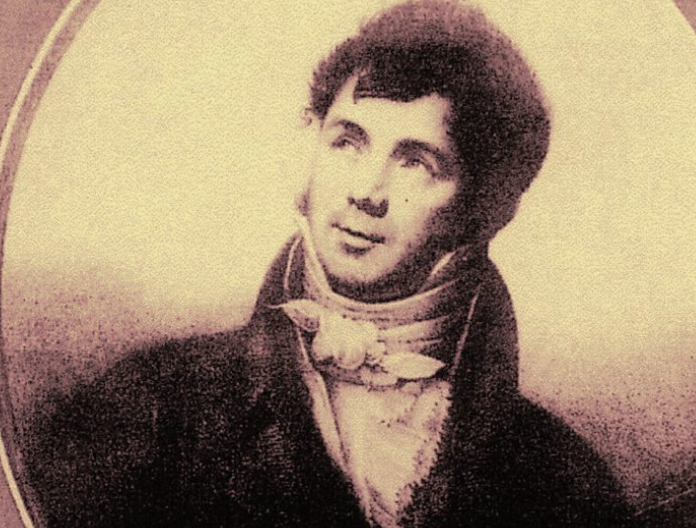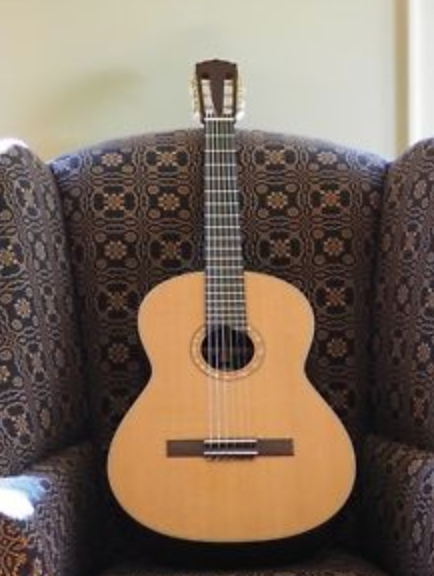For Sure.
I’ve made no secret here at urbancrows about my love of classical music, particularly the canon of music that’s been composed for the guitar. In a previous piece I salivated about the glorious Turkish flavours baked into “Koyunbaba”, a suite in 3 movements written by Carlo Domeniconi, an Italian composer who lived in Istanbul for years. I’ve also blathered about Bach’s incredible violin piece, the Chaconne, and droned on ad nauseam about Tallis‘s contribution to the development of English votive music.

Well, today it’s the turn of the brilliant guitarist Fernando Sor, a Spanish composer and string-plucker who was born in Barcelona on Valentines Day, 1778. He lived to the not-really-so-ripe age of 61, and died a nasty, slow, painful death from tongue and throat cancer. I can only imagine what that was like in 1839.
Sor was a pioneer of the classical guitar and one of the first musicians to play it as a solo instrument. By all accounts he was a true virtuoso and some of his compositions proved impossible to play for the other guitarists of the time. He developed many of the teaching methods that are still used today in the study of classical guitar.

You Bloody Traitor…
Evidently he was a better musician than political fortune teller. When the French invaded Spain, he first wrote patriotic music for the Spanish side, but as soon as the French won and installed a colonial government, he jumped ship and worked for them as a government administrator. Not the smartest of moves. Branded a traitor, when the Spaniards finally threw the French out, he had to leave his homeland for Paris. He ended up living a peripatetic existence, moving from country to country -including England and Russia- always looking for new audiences and patrons to fund his teaching and composing.
I Hate You All
Like many pioneering composers, he felt unappreciated by the masses and spent his last years mired in sarcastic bitterness, still composing but having to write nice, commercially appealing compositions, while making his feelings very clear:
“He settled down and decided to live out the rest of his life back in Paris. It was during this retirement that he composed the majority of his guitar works. He had to comply with the demands of the public, though, and most guitarists wanted technically simple, nice-sounding pieces. It was in these last ten or so years of his life that his writings reveal his bitterness towards how his publications were being received by the public. For example, Opus 43 is entitled Mes Ennuis (“My Annoyances”), and six of his ballets are dedicated to “whoever wants them”. These and other caustic remarks did not help his sales in the least.”
https://en.wikipedia.org/wiki/Fernando_Sor
Get On With It. Where’s The Music?
I can’t remember where I first heard his music. It may have been on a CD collection of guitar pieces, who knows. What I do know is, he wrote some stunning pieces in which you can clearly hear the future romantic direction that Spanish classical guitar would take. So here’s a couple of his best known works. The first is Sor’s Opus 9, a delightful series of variations on a song by Mozart from his masterpiece the Magic Flute, O Cara Armonia. I’ve posted a link to the original song as well, so you can see how Sor adapted it. Click on the picture of Ana Vidovic, below, to listen to Sor’s variations.

And here’s the original by Mozart.
The second piece, played here by Bozhana Pavlova, has become a bit of a standard in any great guitarist’s repertoire; the Fantasie Elagiaque. It was written in memory of a young woman, one of his students, who died in childbirth in 1835. The piece contains clear echoes of a funeral march, but also more uplifting passages in celebration of the woman’s life.
What’s An Elegy?
The word Elagiaque was a new one for me. When I threw it into google translate, the web spat back the word “Elegy”. Clearly related to eulogy thinks I. And sure enough, an elegy is a poem of serious reflection, normally a lament for the dead. Not the cheeriest stuff, to be sure, but as with Bach’s Chaconne, out of great emotion comes amazing art. Enjoy.
Don’t Forget
The reason I spend so much time writing for this blog is that I have no friends. My only contact with the outsider room is via the sparse comments I get from my subscribers. It’s true. I’m a billy-no-mates. Here I sit, faithful dog at my overly large feet, hammering away at my keyboard hoping that one day I’ll attract a new subscriber that I can harass and spam with unsolicited emails. Just kidding. I promise I won’t cyber stalk you if you pop your email address into the music-loving subscription box that’s placed conventionally near the top of the page. But I will be sure to email you more music-related twaddle whenever I post it. Hopefully, one day you’ll email me and tell me you love my music choices, and I’ve been a huge influence on your musical development, but I won’t hold my breath.


Thank you so much, Ralph, for this post. When I heard Ana Vidovic play Sor’s variations, I realized immediately that I knew the music practically by heart. It had been a favourite of my parents and I grew up listening to it, but I had never known who the composer was! Now I know. I had never heard of Sor before now, so this has been an education: – lovely, moving music, and also two superb performers.
How come you know so much about classical music? Where does your love of music come from? Do you play any musical instruments?
Well… an inspirational music teacher at grammar school, a history of school choir, and a subsequent relentless interest. I live vicariously through YouTube wishing I could play something passably well.